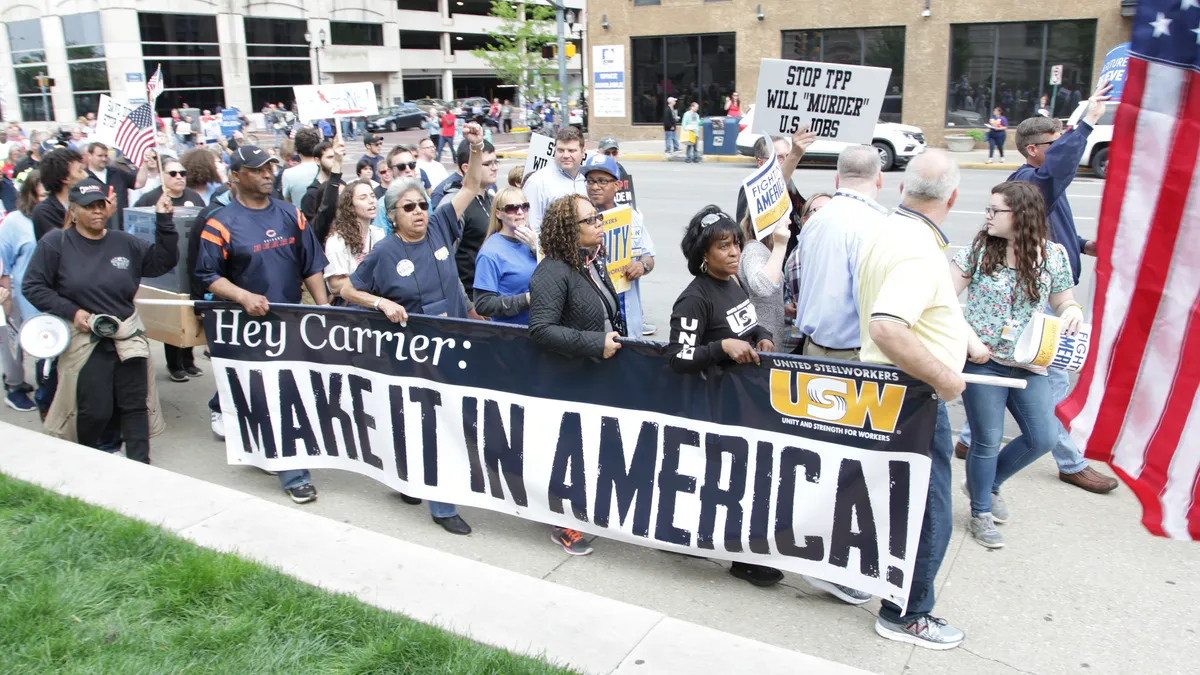Dive Brief:
- China's "iPhone City" in Zhengzhou — which hosts Apple's manufacturing partner, Foxconn Technology Group, and can produce 500,000 iPhones a day — is emblematic of the local incentive system behind many companies' offshoring decisions, according to a recent New York Times report.
- Although few know exactly how much the Chinese government bestowed upon Foxconn to bring its operations to the region, the local government has provided at least $1.5 billion for aid in building sections of the enormous factory and convenient employee housing.
- In addition, Zhengzhou eliminated both corporate taxes and value-added taxes for the first five years of production in iPhone City, then halved them for another half-decade. The city also lowered Foxconn’s payments to workers by roughly $100 million per year.
Dive Insight:
In the period during which China lured Foxconn and thus Apple to Zhengzhou, offshoring was the most reliable way to lower production costs and ensure limited taxation on profits. However, with American companies manufacturing overseas under public pressure to come home, how many will maintain foreign production?
The answer may lie with incentives. Almost every American city and state has devised its own set of desirable terms by which to draw new business. Low taxes, an abundant workforce, and even an easy lifestyle are touted as reasons to relocate. While few can offer anything resembling what China gave Foxconn, similar industrial parks (e.g. Tesla Town, Silicon Valley) are commonplace. In fact, when President Donald Trump's tariff-based, anti-offshoring saber-rattling began on Twitter last summer, Carrier reached a $7 million tax-break deal with Indiana to maintain its production in the state.
Yet, incentives can only go so far. Economic and practical factors such as a trained workforce, available space, and desirable near-shoring will impact the return of U.S. manufacturing. Also to be considered is the unlikelihood that foreign locations used to the added income and employment availability will simply wave goodbye to longstanding business residents. Zhengzhou is a good example: 6 million are employed there. Will China kiss Apple goodbye, along with its jobs? If a global restructuring of supply chains is to occur, it will be a protracted process with both sides offering incentives (and threats).














